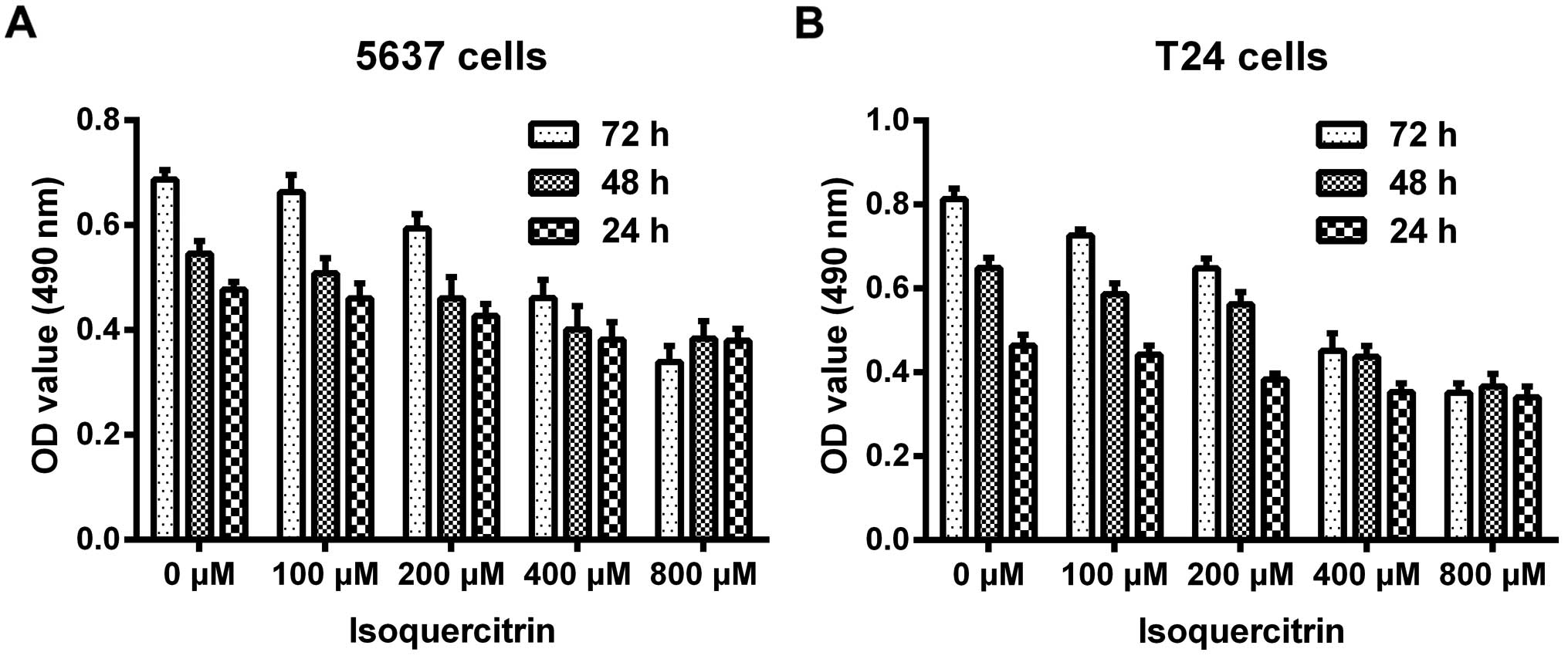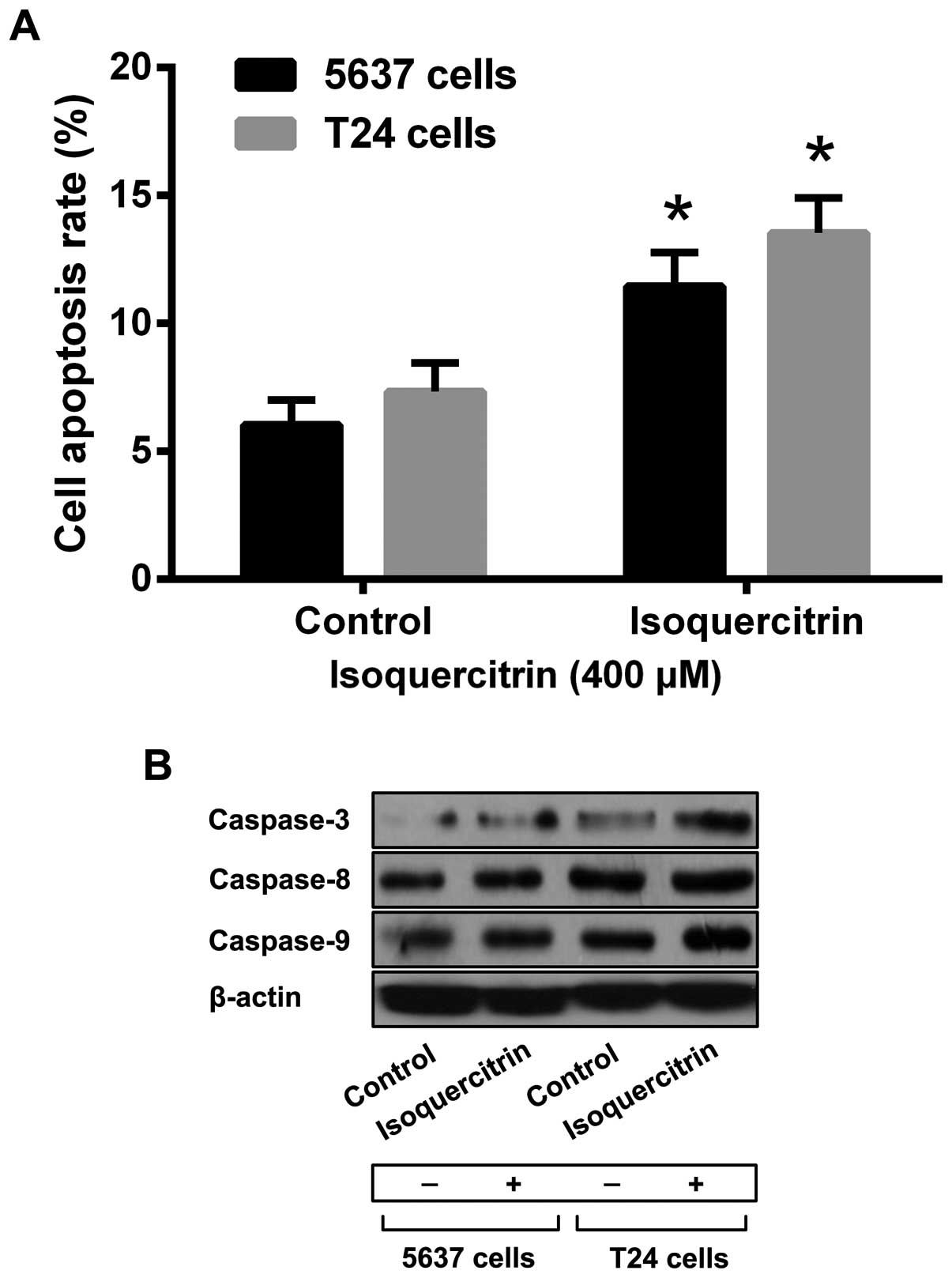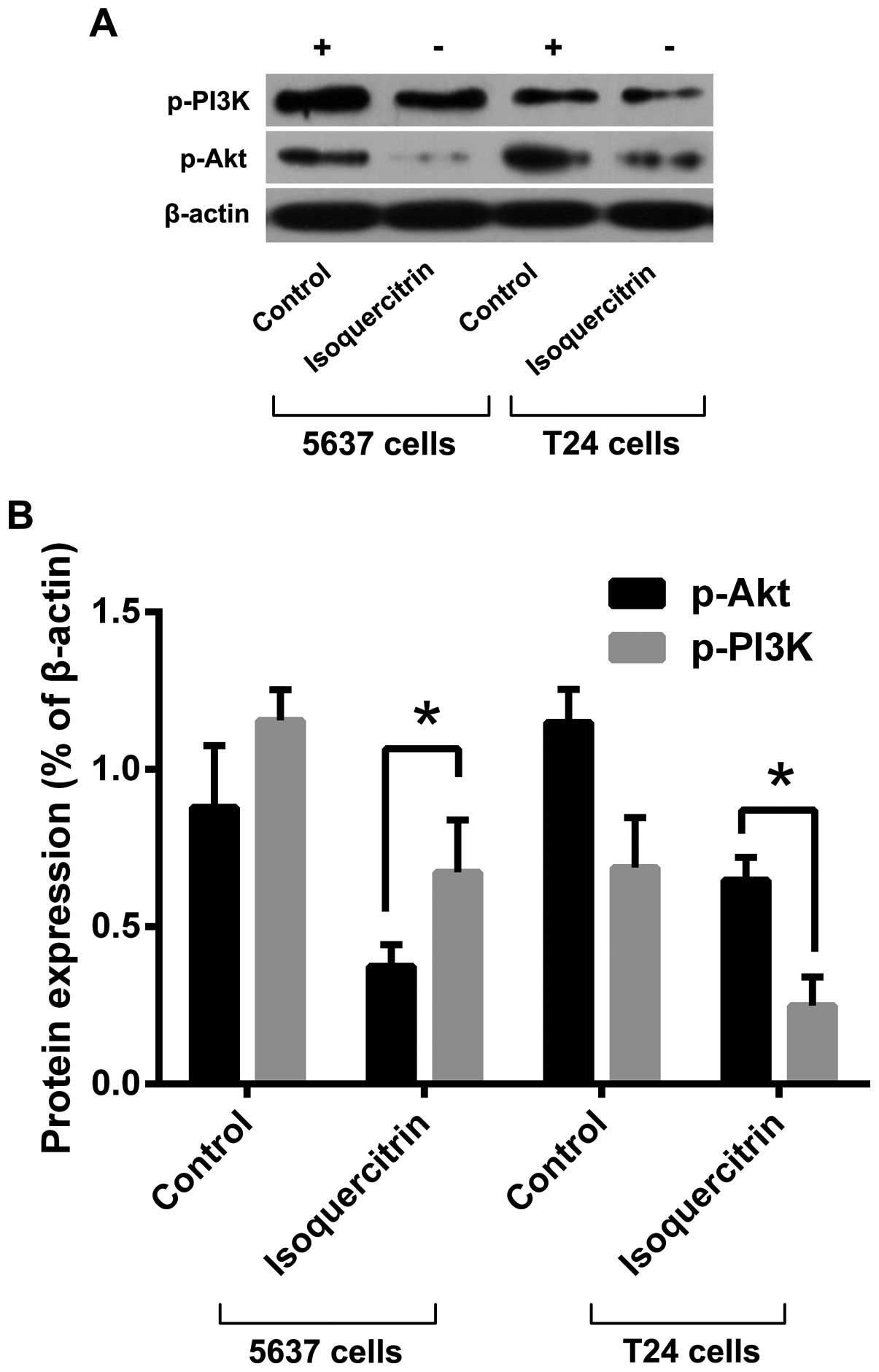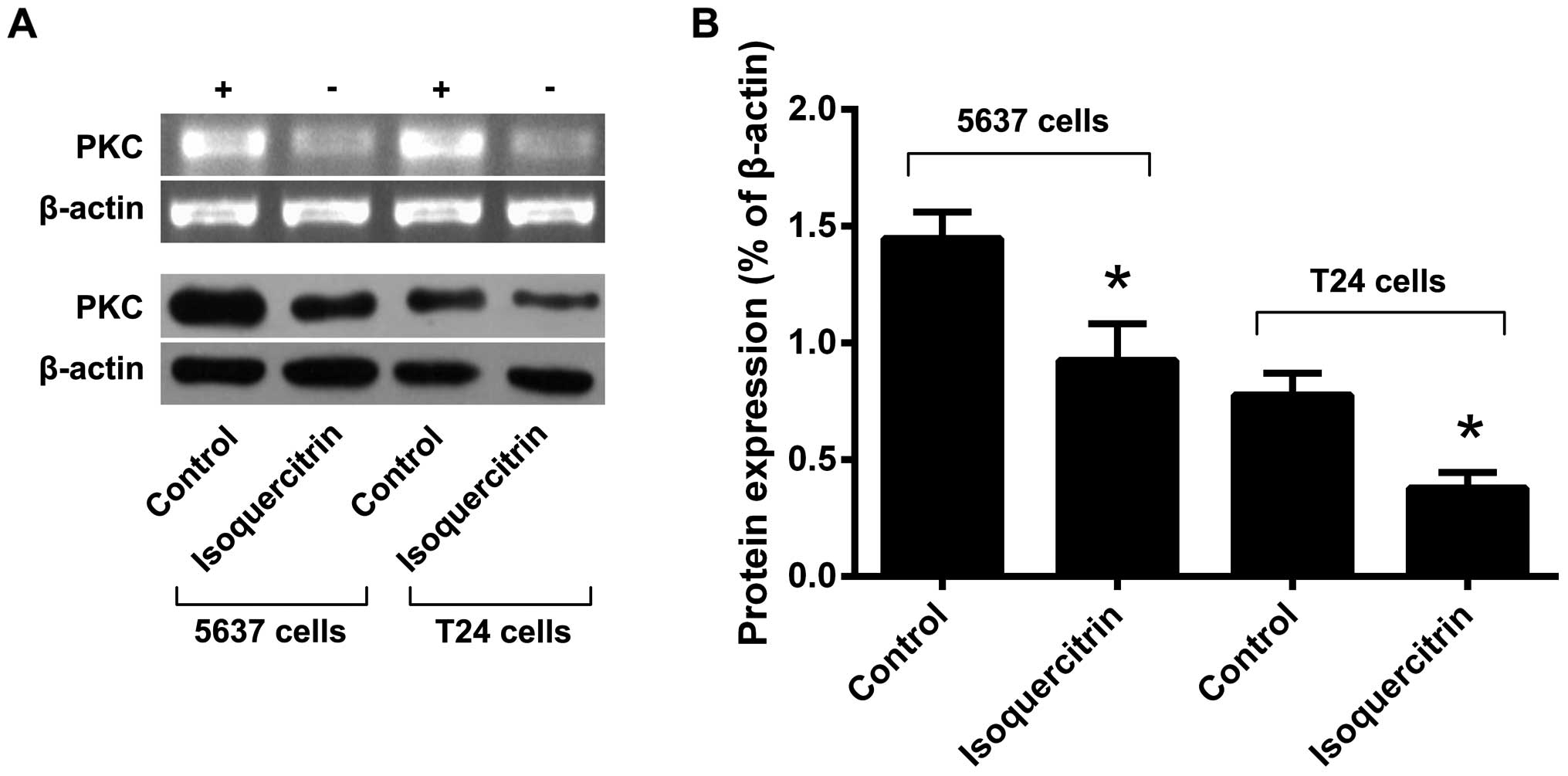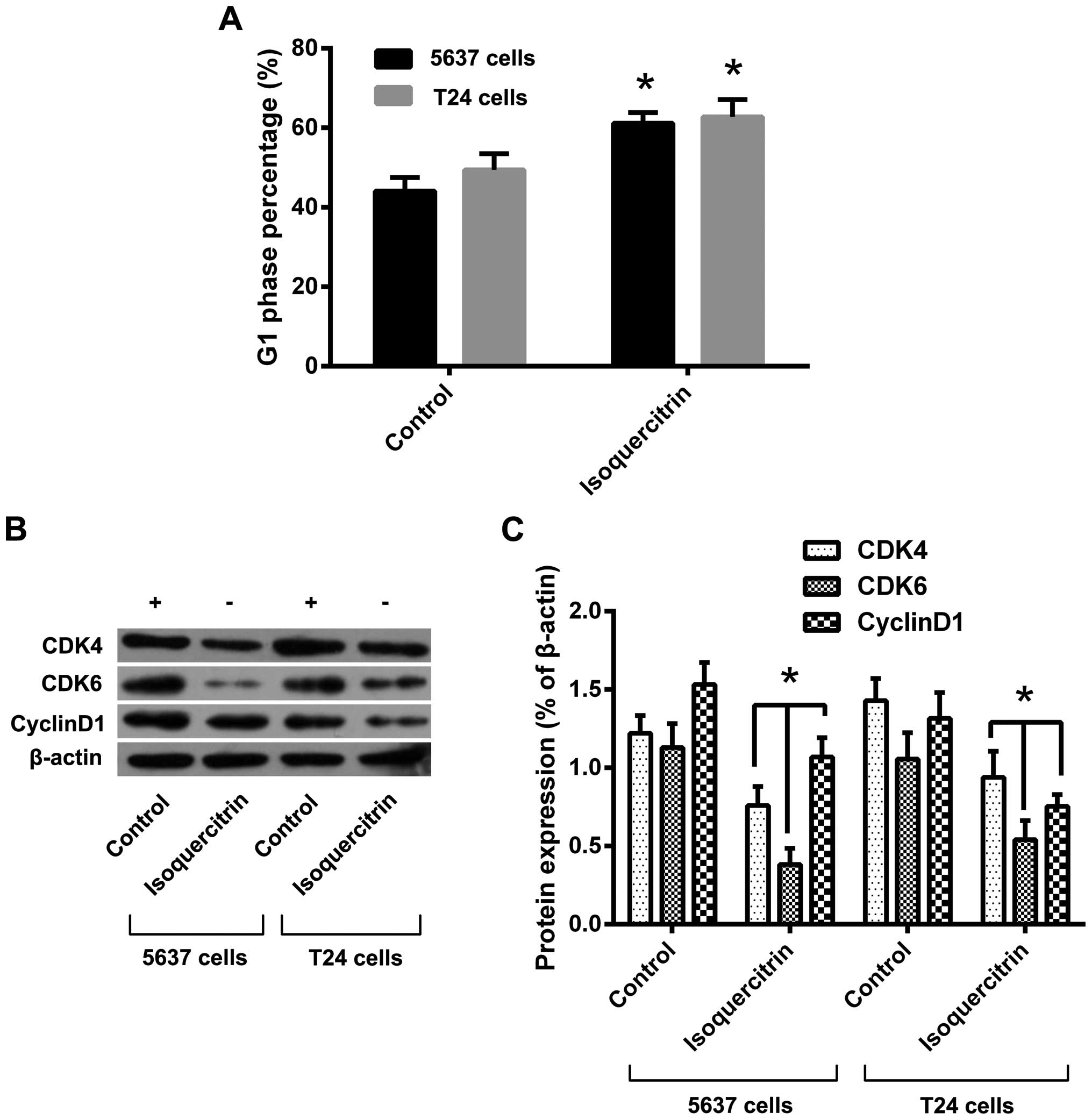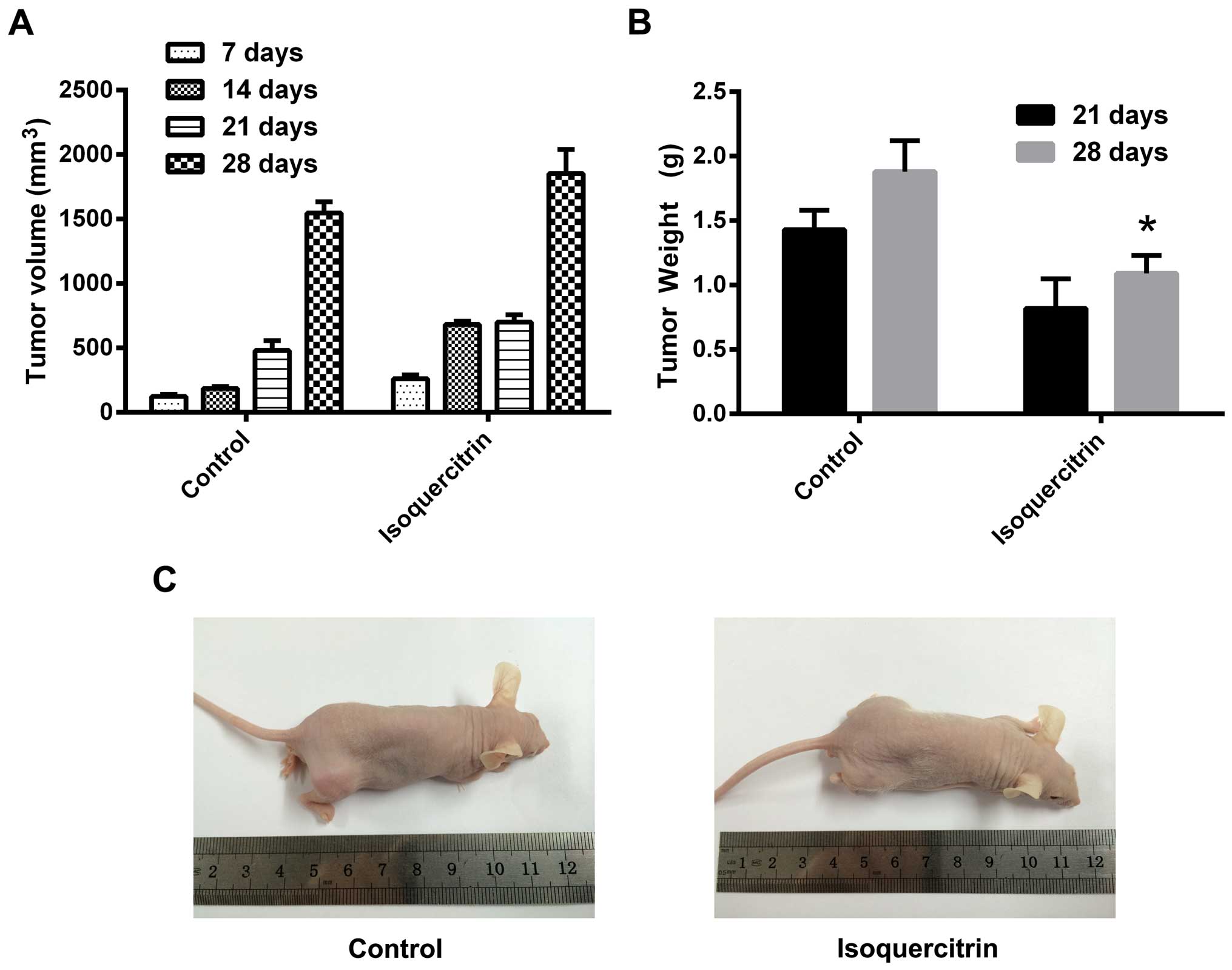|
1
|
Ferlay J, Shin HR, Bray F, Forman D,
Mathers C and Parkin DM: Estimates of worldwide burden of cancer in
2008: GLOBOCAN 2008. Int J Cancer. 127:2893–2917. 2010. View Article : Google Scholar
|
|
2
|
Parkin DM, Bray F, Ferlay J and Pisani P:
Global cancer statistics, 2002. CA Cancer J Clin. 55:74–108. 2005.
View Article : Google Scholar : PubMed/NCBI
|
|
3
|
Dahm P and Gschwend JE: Malignant
non-urothelial neoplasms of the urinary bladder: A review. Eur
Urol. 44:672–681. 2003. View Article : Google Scholar : PubMed/NCBI
|
|
4
|
Yu B, Zhou J, Cai H, Xu T, Xu Z, Zou Q and
Gu M: Neoadjuvant chemotherapy for primary adenocarcinomas of the
urinary bladder: A single-site experience. BMC Urol. 15:32015.
View Article : Google Scholar : PubMed/NCBI
|
|
5
|
Wu WY, Hou JJ, Long HL, Yang WZ, Liang J
and Guo DA: TCM-based new drug discovery and development in China.
Chin J Nat Med. 12:241–250. 2014.PubMed/NCBI
|
|
6
|
Qiu X and Jia J: Research advances on TCM
anti-tumor effects and the molecular mechanisms. J Cancer Res Ther.
10(Suppl 1): 8–13. 2014. View Article : Google Scholar : PubMed/NCBI
|
|
7
|
Hsiao WL and Liu L: The role of
traditional Chinese herbal medicines in cancer therapy - from TCM
theory to mechanistic insights. Planta Med. 76:1118–1131. 2010.
View Article : Google Scholar : PubMed/NCBI
|
|
8
|
Chen Q, Li P, Li P, Xu Y, Li Y and Tang B:
Isoquercitrin inhibits the progression of pancreatic cancer in vivo
and in vitro by regulating opioid receptors and the
mitogen-activated protein kinase signalling pathway. Oncol Rep.
33:840–848. 2015.
|
|
9
|
Amado NG, Predes D, Fonseca BF, Cerqueira
DM, Reis AH, Dudenhoeffer AC, Borges HL, Mendes FA and Abreu JG:
Isoquercitrin suppresses colon cancer cell growth in vitro by
targeting the Wnt/β-catenin signaling pathway. J Biol Chem.
289:35456–35467. 2014. View Article : Google Scholar : PubMed/NCBI
|
|
10
|
Valentová K, Vrba J, Bancířová M,
Ulrichová J and Křen V: Isoquercitrin: Pharmacology, toxicology,
and metabolism. Food Chem Toxicol. 68:267–282. 2014. View Article : Google Scholar : PubMed/NCBI
|
|
11
|
Huang G, Tang B, Tang K, Dong X, Deng J,
Liao L, Liao Z, Yang H and He S: Isoquercitrin inhibits the
progression of liver cancer in vivo and in vitro via the MAPK
signalling pathway. Oncol Rep. 31:2377–2384. 2014.PubMed/NCBI
|
|
12
|
Amado NG, Cerqueira DM, Menezes FS, da
Silva JF, Neto VM and Abreu JG: Isoquercitrin isolated from Hyptis
fasciculata reduces glioblastoma cell proliferation and changes
beta-catenin cellular localization. Anticancer Drugs. 20:543–552.
2009. View Article : Google Scholar : PubMed/NCBI
|
|
13
|
Ran J, Wang Y, Zhang W, Ma M and Zhang H:
Research on the bioactivity of isoquercetin extracted from
marestail on bladder cancer EJ cell and the mechanism of its
occurrence. Artif Cells Nanomed Biotechnol. 4:1–6. 2015. View Article : Google Scholar
|
|
14
|
Peng Y, Li L, Huang M, Duan C, Zhang L and
Chen J: Angiogenin interacts with ribonuclease inhibitor regulating
PI3K/AKT/mTOR signaling pathway in bladder cancer cells. Cell
Signal. 26:2782–2792. 2014. View Article : Google Scholar : PubMed/NCBI
|
|
15
|
Gong WY, Wu JF, Liu BJ, Zhang HY, Cao YX,
Sun J, Lv YB, Wu X and Dong JC: Flavonoid components in Scutellaria
baicalensis inhibit nicotine-induced proliferation, metastasis and
lung cancer-associated inflammation in vitro. Int J Oncol.
44:1561–1570. 2014.PubMed/NCBI
|
|
16
|
Chen YJ, Cheng YJ, Hung AC, Wu YC, Hou MF,
Tyan YC and Yuan SS: The synthetic flavonoid WYC02-9 inhibits
cervical cancer cell migration/invasion and angiogenesis via MAPK14
signaling. Gynecol Oncol. 131:734–743. 2013. View Article : Google Scholar : PubMed/NCBI
|
|
17
|
Wang CZ, Calway TD, Wen XD, Smith J, Yu C,
Wang Y, Mehendale SR and Yuan CS: Hydrophobic flavonoids from
Scutellaria baicalensis induce colorectal cancer cell apoptosis
through a mitochondrial-mediated pathway. Int J Oncol.
42:1018–1026. 2013.PubMed/NCBI
|
|
18
|
Fotso AF, Longo F, Djomeni PD, Kouam SF,
Spiteller M, Dongmo AB and Savineau JP: Analgesic and
antiinflammatory activities of the ethyl acetate fraction of Bidens
pilosa (Asteraceae). Inflammopharmacology. 22:105–114. 2014.
View Article : Google Scholar
|
|
19
|
Yang QH, Yang J, Liu GZ, Wang L, Zhu TC,
Gao HL and Kou XG: Study on in vitro anti-tumor activity of Bidens
bipinnata L. extract. Afr J Tradit Complement Altern Med.
10:543–549. 2013.PubMed/NCBI
|
|
20
|
Maggioni D, Biffi L, Nicolini G and
Garavello W: Flavonoids in oral cancer prevention and therapy. Eur
J Cancer Prev. 24:517–528. 2015. View Article : Google Scholar
|
|
21
|
Ma TT, Xie J, Zhang QL, Xu H, Li J and
Chen FH: Analysis of fingerprint and bioactive components of Bidens
biternata by HPLC. Zhong Yao Cai. 35:892–896. 2012.In Chinese.
PubMed/NCBI
|
|
22
|
Zhong MM, Chen FH, Yuan LP, Wang XH and Wu
FR: Study on the property of adsorption and separation of the
macroporous resins for total flavonoids of Bidens bipinnata L.
Zhong Yao Cai. 30:338–341. 2007.In Chinese. PubMed/NCBI
|
|
23
|
Zhang X, Han C and He J: Research progress
of oncogene and tumor suppressor gene in bladder cancer. Panminerva
Med. 57:191–200. 2015.PubMed/NCBI
|
|
24
|
Cancer Genome Atlas Research Network:
Comprehensive molecular characterization of urothelial bladder
carcinoma. Nature. 507:315–322. 2014. View Article : Google Scholar : PubMed/NCBI
|
|
25
|
Fabregat I, Roncero C and Fernández M:
Survival and apoptosis: A dysregulated balance in liver cancer.
Liver Int. 27:155–162. 2007. View Article : Google Scholar : PubMed/NCBI
|
|
26
|
Koschny R, Brost S, Hinz U, Sykora J,
Batke EM, Singer S, Breuhahn K, Stremmel W, Walczak H, Schemmer P,
et al: Cytosolic and nuclear caspase-8 have opposite impact on
survival after liver resection for hepatocellular carcinoma. BMC
Cancer. 13:5322013. View Article : Google Scholar : PubMed/NCBI
|
|
27
|
Kumar S and Vaux DL: Apoptosis. A
cinderella caspase takes center stage. Science. 297:1290–1291.
2002. View Article : Google Scholar : PubMed/NCBI
|
|
28
|
Dewson G and Kluck RM: Mechanisms by which
Bak and Bax permeabilise mitochondria during apoptosis. J Cell Sci.
122:2801–2808. 2009. View Article : Google Scholar : PubMed/NCBI
|
|
29
|
Fombonne J, Bssey PA, Guix C, Sadoul R,
Thibert C and Mehlen P: Patched dependence receptor triggers
apoptosis through ubiquitination of caspase-9. Proc Natl Acad Sci
USA. 109:10510–10515. 2012. View Article : Google Scholar : PubMed/NCBI
|
|
30
|
Rew DA and Wilson GD: Cell production
rates in human tissues and tumours and their significance. Part II:
Clinical data. Eur J Surg Oncol. 26:405–417. 2000. View Article : Google Scholar : PubMed/NCBI
|
|
31
|
Kazi A and Dou QP: Cell cycle and drug
sensitivity. Methods Mol Med. 111:33–42. 2005.PubMed/NCBI
|
|
32
|
Carneiro BA, Meeks JJ, Kuzel TM, Saranti
M, Abdulkadir SA and Giles FJ: Emerging therapeutic targets in
bladder cancer. Cancer Treat Rev. 41:170–178. 2015. View Article : Google Scholar
|
|
33
|
Sathe A, Guerth F, Cronauer MV, Heck MM,
Thalgott M, Gschwend JE, Retz M and Nawroth R: Mutant PIK3CA
controls DUSP1-dependent ERK 1/2 activity to confer response to AKT
target therapy. Br J Cancer. 111:2103–2113. 2014. View Article : Google Scholar : PubMed/NCBI
|
|
34
|
Moon G, Lee SE, Oh MM, Lee SC, Jeong SJ,
Hong SK, Yoon CY, Byun SS, Park HS and Cheon J: NVP-BEZ235, a dual
PI3K/mTOR inhibitor synergistically potentiates the antitumor
effects of cisplatin in bladder cancer cells. Int J Oncol.
45:1027–1035. 2014.
|
|
35
|
Bartholomeusz C and Gonzalez-Angulo AM:
Targeting the PI3K signaling pathway in cancer therapy. Expert opin
Ther Targets. 16:121–130. 2012. View Article : Google Scholar : PubMed/NCBI
|
|
36
|
Yang X, Cheng Y, Li P, Tao J, Deng X,
Zhang X, Gu M, Lu Q and Yin C: A lentiviral sponge for miRNA-21
diminishes aerobic glycolysis in bladder cancer T24 cells via the
PTEN/PI3K/AKT/mTOR axis. Tumour biol. 36:383–391. 2015. View Article : Google Scholar
|
|
37
|
Liu J, Kong CZ, Gong DX, Zhang Z and Zhu
YY: PKC α regulates netrin-1/UNC5B-mediated survival pathway in
bladder cancer. BMC Cancer. 14:932014. View Article : Google Scholar
|















